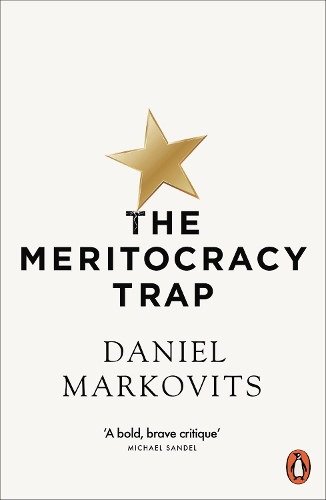
The Meritocracy Trap
(Paperback)
Publishing Details
The Meritocracy Trap
By (Author) Daniel Markovits
Penguin Books Ltd
Penguin Books Ltd
17th November 2020
27th August 2020
United Kingdom
Classifications
Professional and Scholarly
Non Fiction
Economic history
Popular economics
Social discrimination and social justice
Poverty and precarity
Social mobility
Sociology: work and labour
Impact of science and technology on society
Social classes
305.5
Physical Properties
Paperback
464
Width 131mm, Height 197mm, Spine 21mm
320g
Description
A revolutionary argument from an eminent Yale Law professor, attacking the myth of meritocracy to show how it has caused today's political, economic, and psychological crises - and how we might escape its trap Even in the midst of runaway economic inequality and dangerous social division, it remains an axiom of modern life that meritocracy reigns supreme and promises to open opportunity to all. The idea that reward should follow ability and effort is so entrenched in our psyche that, even as society divides itself at almost every turn, all sides can be heard repeating meritocratic notions. Meritocracy cuts to the heart of who we think we are. But what if, both up and down the social ladder, meritocracy is a sham Today, meritocracy has become exactly what it was conceived to resist- a mechanism for the concentration and dynastic transmission of wealth and privilege across generations. Upward mobility has become a fantasy, and the embattled middle classes are now more likely to sink into the working poor than to rise into the professional elite. At the same time, meritocracy now ensnares even those who manage to claw their way to the top, requiring rich adults to work with crushing intensity, exploiting their expensive educations in order to extract a return. All this is not the result of deviations or retreats from meritocracy but rather stems directly from meritocracy's successes. This is the radical argument that The Meritocracy Trap prosecutes with rare force, comprehensive research, and devastating persuasion.
Author Bio
Daniel Markovits is Guido Calabresi Professor of Law at Yale Law School. He works in the philosophical foundations of private law, moral and political philosophy, and behavioral economics. He has written articles on contract, legal ethics, distributive justice, democratic theory, and other-regarding preferences.
